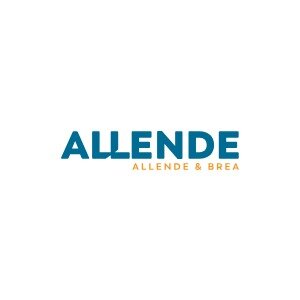Best Banking & Finance Lawyers in Argentina
Share your needs with us, get contacted by law firms.
Free. Takes 2 min.
Or refine your search by selecting a city:
List of the best lawyers in Argentina
About Banking & Finance Law in Argentina
Banking & Finance Law in Argentina encompasses a wide range of activities focused on the regulation of financial institutions and transactions. The country's financial system is a mix of public and private entities, all governed by Argentina's central bank, the Banco Central de la República Argentina (BCRA). The BCRA establishes monetary policies and regulations, ensuring stability and functioning of the financial markets. Additionally, Argentina is a member of the Financial Action Task Force (FATF), which emphasizes compliance with international standards on combating money laundering and terrorist financing.
Why You May Need a Lawyer
Individuals and businesses may require legal assistance in Banking & Finance for various reasons. Common situations include:
- Establishing or dissolving a bank or other financial entity.
- Navigating complex financial transactions and ensuring they comply with local regulations.
- Handling disputes related to financial agreements or financial services.
- Addressing regulatory compliance issues, including anti-money laundering regulations.
- Setting up investment funds or managing security offerings.
- Negotiating loan agreements and debt restructuring.
- Understanding and addressing the legal impact of economic changes or government policies on financial operations.
Local Laws Overview
Key aspects of local laws that are particularly relevant to Banking & Finance in Argentina include:
- Central Banking Regulations: Supervised by the BCRA, which regulates monetary policy and financial stability.
- Financial Institution Licensing: Legal frameworks for licensing and operating banks and other financial entities in Argentina.
- Foreign Exchange Controls: Policies affecting currency transactions and capital flows, which are periodically adjusted based on economic conditions.
- Consumer Protection: Laws protecting individuals using financial services, ensuring fair treatment and transparency.
- TAX Legislation: Laws that influence financing operations, investment and foreign funding.
- Anti-Money Laundering (AML): Strict regulations and compliance obligations aimed at preventing illicit financial activities.
Frequently Asked Questions
What is the role of the BCRA in Argentina's Banking sector?
The Banco Central de la República Argentina (BCRA) acts as the country's central bank, regulating monetary policies, issuing currency, and overseeing financial stability within the banking sector.
Do I need a license to operate a financial institution in Argentina?
Yes, operating a financial institution requires obtaining a license from the BCRA, which involves meeting specific regulatory and financial prerequisites.
How do foreign exchange controls affect financial transactions in Argentina?
Foreign exchange controls can impact the ability to exchange currencies and repatriate funds, making it essential for businesses and individuals to understand and comply with these regulations.
What steps are required for compliance with AML regulations?
Compliance involves implementing internal controls, regular monitoring of financial activities, and reporting suspicious transactions to appropriate authorities.
How can businesses protect themselves from financial fraud in Argentina?
Businesses should establish robust security measures, conduct regular audits, and ensure compliance with local laws to mitigate the risk of financial fraud.
What are the options for resolving disputes with banks in Argentina?
Options include negotiations, mediation, or formal legal action in the appropriate judicial system, depending on the nature of the dispute.
How do consumer protection laws impact banking services?
These laws ensure transparency, fairness, and the rights of consumers when dealing with banks and financial services, requiring institutions to provide clear information about products and fees.
What is the process for obtaining a loan in Argentina?
The process involves submitting an application to a bank or financial institution, along with required documentation, and meeting their credit and financial criteria.
How are investment funds regulated in Argentina?
Investment funds are regulated by the Comisión Nacional de Valores (CNV), which establishes rules to protect investors and maintain market integrity.
What should I consider before investing in Argentina?
Potential investors should understand the local market conditions, legal requirements, and economic policies that may impact their investment activities.
Additional Resources
For additional support, consider consulting these resources:
- Banco Central de la República Argentina (BCRA): For information on monetary policy and banking regulations.
- Comisión Nacional de Valores (CNV): For guidelines on investing and securities regulation.
- Argentine Tax Authority (AFIP): For tax-related inquiries and compliance.
- Consumer Protection Directorate: For issues related to consumer rights in financial services.
- Legal Associations: Local bar associations can refer competent legal professionals guiding in Banking & Finance.
Next Steps
If you require legal assistance in Banking & Finance, consider the following steps:
- Identify the area of law you need assistance with, whether it's regulatory compliance, litigation, or transaction structuring.
- Consult with legal professionals specializing in Banking & Finance in Argentina, ensuring they have experience and a strong understanding of local laws.
- Prepare relevant documentation and details about your situation before seeking legal counsel.
- Evaluate the proposed legal strategies and understand the potential outcomes before proceeding.
- Regularly communicate with your legal advisor to stay informed and compliant with ongoing legal and regulatory changes.
Lawzana helps you find the best lawyers and law firms in Argentina through a curated and pre-screened list of qualified legal professionals. Our platform offers rankings and detailed profiles of attorneys and law firms, allowing you to compare based on practice areas, including Banking & Finance, experience, and client feedback.
Each profile includes a description of the firm's areas of practice, client reviews, team members and partners, year of establishment, spoken languages, office locations, contact information, social media presence, and any published articles or resources. Most firms on our platform speak English and are experienced in both local and international legal matters.
Get a quote from top-rated law firms in Argentina — quickly, securely, and without unnecessary hassle.
Disclaimer:
The information provided on this page is for general informational purposes only and does not constitute legal advice. While we strive to ensure the accuracy and relevance of the content, legal information may change over time, and interpretations of the law can vary. You should always consult with a qualified legal professional for advice specific to your situation.
We disclaim all liability for actions taken or not taken based on the content of this page. If you believe any information is incorrect or outdated, please contact us, and we will review and update it where appropriate.
Browse banking & finance law firms by service in Argentina
Argentina Attorneys in related practice areas.
Browse banking & finance law firms by city in Argentina
Refine your search by selecting a city.















